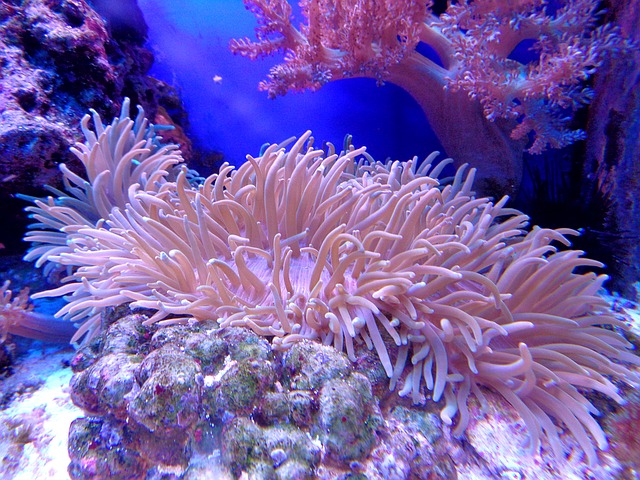Coral reefs look beautiful. They resemble like an undersea city full of colorful fishes, wondrous sea creatures, and intricate formations. The presence of Coral reefs is essential for various different reasons. For people who gave explored it, the significance of coral reefs goes beyond than its visual pleasure. From fish reproduction, and shore line protection to water filtration, and erosion prevention, coral reefs play an important role in everything. Let us know more about its significance, and benefits in detail.

A Coastal Protection
Though, reefs occupy an area of 0.2% of the entire seabed, they run along around 150 000 km of coastline in 100 nations, and territories. Their massive formation makes coral reefs highly effective for absorption of elements that comes from the ocean. Coral Reefs has the potential to absorb waves energy.
They contribute towards protection of the environment by way of reducing coastal erosion. Coral Reefs helps in the reduction of the damage due to hurricanes, storms, the intensity of tsunamis. In this way, coral reefs safeguard ecosystems located between the coasts, and reefs such as lagoon, and sea grass.
Coral reef assists in stabilization of sea grass beds, and mangroves that can be easily uprooted via currents, and large waves. Erosion prevention is specifically essential in coastal areas where a significant portion of shore is lined with commercial buildings, and residential homes.
Serves As A Habitat
Coral reef has more than 1 million species of animal, and plant that makes up the biodiversity hotspot on the Earth. These reefs form the foundation for the buildup of other ecosystems too.
Source Of Food
Around 275 million people lives in ten kilometers area of the coastline and 30 kilometers area of coral. 1/8th of the population of the world, approx. 850 million people reside in hundred kilometers of coral reef. They reap the advantages of ecosystem services that are offered by coral reefs.
The reef provides them a large proportion of nutrition dense food that includes reef animals, tons of fishes, molluscs, crustaceans, and other types of invertebrates in every square kilometer. Fish and other kinds of marine life are a rich source of protein, nitrogen, and other essential nutrients for all people, and marine food chains who live on coastal side.
Economic Development
Coral reefs are considered to be the backbone of a country’s economy. Coral reefs are a great source of income too. People generates a lot of income from fishing in the water. Reefs acts as a major source of services, and resources that are worth billions of dollars per year. People all across the world rely on these reefs for protection, employment, and food. As per the statistics, the total yearly earnings of coral reefs computed in the world comes to be $29.8 billion.
Diversity
Coral reef serves as the basis for composite food webs. These reefs offer support to an exemplary diversity of fishes. A coral reef comprises of soft coral, Algae, invertebrates, and sponges that forms the basis of the web. From large sized predatory fish, to small herbivorous fish, different organisms obtain protection, and food on the coral reef.
Reef fishes come in a large range of marine reptiles, mammals, and crustaceans. Everything from octopus, and lobsters to dolphins, and sea turtles relies on the coral reef for habitat, protection, and food. These variety of species of animals play a remarkable role in the maintenance of the reef ecosystem.
They not just filter water, keep a particular species in control, but also consume prolific algae. By assisting a wide array of animals, and plants these reefs maintain balanced relations between prey, organisms and predators. These balanced relations keep marine ecosystems abundant, and diverse with life.
A Wealth Of Tourism
Coral reefs are an essential element throughout the tropical regions’ economy in which they inhabit. The reef attracts divers such as recreational fishermen, free divers, enthusiasts of white sand beaches. Local economies extensively benefit from reefs with companies from exploiting reef ecosystems. More than 90 percentage of economic development relies on the coastal tourism. With tourist services, the nation makes billions of dollars.
A Medical Future
Coral reefs significantly contribute towards the advancement of research. Corals have built an effective store of chemical weapons for its defense against any dangerous situation in the reef area. These weapons are very effective due to the wide area of distribution.
A majority of such chemical compounds comprise of molecules that have got the amazing healing abilities. The organisms present in Reef are also used for the treatment of a variety of diseases that includes cancers, leukemia, cardiovascular ailments, HIV, and ulcers.
Water Filtration
Most sponges, and coral reefs serves as a filter feeder. They take in particulate matter that are suspended into the water column and gives an improved clarity, and quality of shore water.